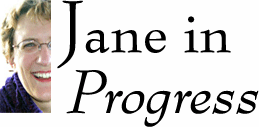 |
|
 |
 |
Looking for tips and tricks to the art of writing for television? Welcome to the blog of experienced television writer Jane Espenson. Check it out regularly to learn about spec scripts, writing dos and don'ts, and what Jane had for lunch! (RSS:  ) |
|
|
Home » Archives » October 2008 » Pitfalls! Don't Fall in the Pit!
[Previous entry: "Merging Toward Verging"] [Next entry: "The Ultimate Puppy"]
10/17/2008: Pitfalls! Don't Fall in the Pit!
Breaking News. What went wrong with your writing program submission? I found out.
I've pinned down three reasons why scripts don't make the cut when they're submitted to scriptwriting competitions like the one profiled yesterday. Two of the three key errors that have been flagged are no surprise to me. But one is, so hold onto your space bars, there's something interesting ahead.
First off - Guest stars! If your spec script centers around a guest character, then that could well be why you didn't get into the program. This was one of the first things I talked about when I started this blog. One of the very few reasons that someone would ask you to write a script for a show that's already on the air is to see if you can capture the voices of the characters. The reader is listening to the show in their head as they read, imagining the literal voices. A guest character, no matter how well-written, causes silence. And it's not just a pseudo-auditory problem -- your regular characters need to drive the story, if someone else is coming in and doing a lot of talking, chances are that you've got them acting and all your regulars reacting. Big problem. It's an episode of The Office, not Michael Scott's Mother Visits The Office. Use original characters in small doses. If you've got a stranger given material that approaches the amount given to one of the regulars, then that's almost certainly why you didn't get in.
Second -- Spelling! Grammar! Punctuation! Imagine that the fellowship reader is filling out a form about your script, creating a score. Imagine that you get points automatically taken off for (real or perceived) errors. How many points do you want to lose because you forgot to have your mom/professor/friend proofread your script to make sure you used the right form of "your," that you spelled "precede" correctly, that you've got your apostrophes in the right place? Seriously, find an apostrophe fiend and make him or her study your script -- I find apostrophe errors in every script I read. Imagine the advantage you'll have when everyone else's script takes a scoring hit in this category and your script does not.
And here is the third, surprise factor:
Failing to observe the difference between multi-camera versus single-camera formatting. This one I did not see coming. Multi-camera, traditional sitcoms like The New Adventures of Old Christine, Two and Half Men and Big Bang Theory use a very specific style of formatting -- stage directions are capitalized and dialogue is double spaced. Some sitcoms also put all the stage directions in parentheses. They also label the scenes with letters of the alphabet (but not ALL letters of the alphabet, some are skipped). I also seem to remember from my comedy days that some shows even had the peculiarity of omitting the period from the last sentence of every clump of stage directions. In a nutshell, sitcom scripts are strange and need to be studied closely. Get a copy of a script for the show you are spec-ing. Study it! Mimic it! If you try your hardest and simply cannot get a script for your show -- well, I think that's a big problem, but the least you can do is to get one for a show that resembles it in format. Again, this mistake is easy to avoid but could cost you.
Submitting a script to a writing program is like submitting your college application. It's worth taking the time to do it right.
Lunch: In 'N' Out burger, "animal style". So good! I wish it was easier to combine this with an order of McDonald's fries.
|
|
|
 |
|
Get Blog Updates Via Email
|
|
 |

